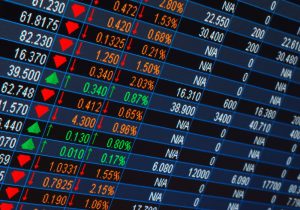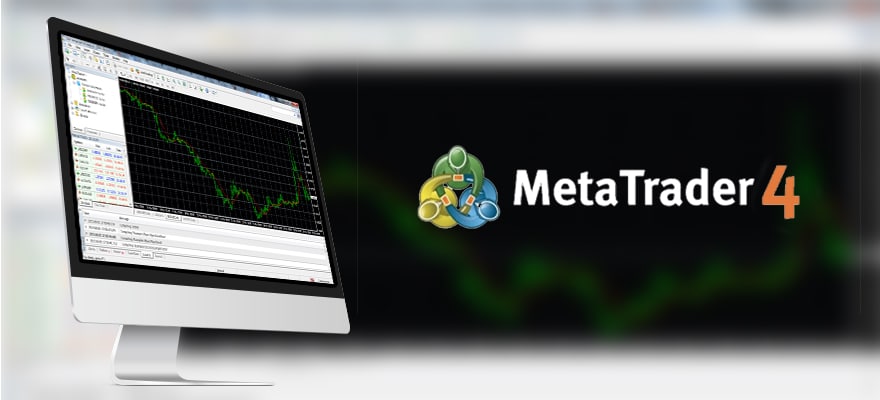How Much Does an MT4 License Cost? & How Much Does an MT5 License Cost?

Our team of forex broker consultants are often approached by startups as well as newly formed FX brokerages looking to acquire either an MT4 or MT5 license. As part of our conversations with our clients, it’s natural that we are asked how much it will cost to buy a MetaTrader 4 (MT4) / MetaTrader 5 (MT5) license. We’ll cover the answer to this question in today’s column, outlining some important points to consider when buying either an MT4 or MT5 license.
Is MetaTrader 4 (MT4) Still Available for Purchase?
No, it is no longer possible to buy an MT4 license. In January of 2018, MetaQuotes officially announced that MetaTrader 4 would be permanently discontinued. For those wondering about the cost of an MT4 license, the simple answer is that MetaTrader 4 / MT4 licenses are no longer available for purchase.
It’s important to note that MT4 still exists, meaning that MetaQuotes still supports the technology but intends to slowly phase it out over time. This means that it is still possible to obtain an MT4 white label. MetaQuotes, however, will simply no longer provide any new license of their MT4 software.
How Much Does a MT5 (MetaTrader 5) License Cost?
The reason behind the decision to discontinue MT4 was to dedicate energy to the growth and expansion of MT5. MetaTrader 5 is a far more robust and versatile software than MT4. Furthermore, MT4 has been on the market for over a decade, making it a dinosaur from a software standpoint. Since it is no longer possible to buy an MT4 license, a reasonable question is to ask how much it costs to buy an MT5 license?
Unlike MT4, which had a single price for its license, MT5 offers different pricing models which are based on the number of active accounts. For example, a license allowing for a maximum of 25,000 active trading accounts will cost more than a license with fewer permissions.
Over the last few months, we’ve noticed that MetaQuotes has been tweaking their pricing figures. To avoid posting outdated information, we’d recommend contacting our team of experts to discuss the pricing for MetaTrader 5 licensing.
Forex Consulting – Expertise in Selecting an MT4 White Label or MT5 Server License
If you are looking to obtain an MT4 white label or acquire an MT5 license, don’t hesitate to get in touch with one of our consultants today. We are happy to discuss pricing with you in more detail, assist in weighing the pros and cons of owning an MT4 license vs a white label, or simply address any other questions you may have.
We look forward to hearing from you!
How Long has Forex Trading Been Around? – A Brief History of Online Forex Trading

Although you probably came to this page due to your interest in online forex trading, the truth is that foreign exchange trading has been around as long as money has existed. If we wanted to get very technical, historians could most likely trace the history of money exchange back to several thousand years ago!
Online forex trading, however, is a relatively new way to invest, having originated for retail traders in the late ’90s. Prior to this time period, currency trading was only available to hedge funds, banks and high net worth individuals. As we’ll outline in today’s post, the development of high speed Internet and software opened up the doors of FX trading so that retail investors could participate in the market with as little as $50 or $100.
How High Speed Internet & Technology Led to the Birth of Online Forex Trading
The end of the Dot Com bubble in the late ’90s / early 2000s marked the origin for what we now know as online FX trading. Around this time Internet speed in America and Europe increased exponentially, making it possible for larger amounts of data to be transmitted more quickly between computers and over the Internet as a whole. A stable and fast Internet connection are a pre-requisite for any forex trading platform as rates are often moving at many miliseconds and nanoseconds.
The second component that led to the beginning of online forex trading were advancements in computer technology. In addition to a fast Internet connection, a computer that could properly handle FX trading software was another critical piece of the puzzle.
Better quality PCs made it possible to download software that could display multiple FX and CFD prices simultaneously all while making it possible for investors to execute trades from them. It was around this time period, roughly the early 2000s where the first online brokers began to appear, mostly in the United States.
In the subsequent years, online forex trading exploded in popularity, taking not just the United States but the world by storm! Due to the complex nature of the forex trading, it took many years for FX brokers to fine tune or perfect their software offering with many bumps and glitches along the way. The type of errors and system outage that the early FX traders experienced would not be tolerated in today’s highly competitive environment.
How MetaTrader and Algorithmic Technology Revolutionized Online Forex Trading
MetaTrader 4 is one of the most popular forex trading platforms in the world, and also one of the first to capture the global market place. As the name of the software suggests, the numeral 4 in MT4 stands for the 4th version, or instance of the software. There were plenty of other trading platforms around this time, but most were just developed in house by the broker for their clients only. MT4 stood out by being the first platform that any broker, large or small, could offers to its client base.
There is another reason MT4 grew in popularity, namely by offering users the ability to execute trading algorithms, also known as Expert Advisors. MetaQuotes revolutionized the online trading industry by being the first software provider to bring automated trading to the retail market. Prior to MetaQuotes only high net worth investors or hedged funds had the resources to execute automated systems.

Social Trading, Cryptocurrencies, and the Future of Forex Trading
The next major developments in the history of forex trading were the introduction of social trading to the market place. In essence, social trading technology made it possible for investors to follow both professional and amateur traders alike. By having the ability to create your own “portfolio” of traders, those who may not have had success trading themselves still had an opportunity to participate in the lucrative opportunities offered by the forex trading market.
The advent of cyrpto currencies has been another milestone for the online forex trading industry. The great rise of Bitcoin and other alt coins in the past years have led to brokers incorporating these currencies into their trading platforms, which opens the door to a new segment of traders and investors.
Consultation Services for Investors and Brokers Alike
If you are new to online forex trading and require guidance in selecting the best forex broker to trade with, don’t hesitate to contact our team if forex industry consultants. In addition, we can also assist you with starting your own forex broker and obtaining an MT4 or MT5 white label.
To learn more don’t hesitate to contact us today!
How Can Forex Brokers Build Effective Marketing Strategies Using Social Media ? – 3 Useful Guidelines

With new forex brokers launching nearly every week, the price for the most popular forex related search keywords will continue to be bid up higher and higher. In what is becoming an online “arms race” for certain FX-related search terms, forex brokers that base their entire marketing strategy on adwords alone will simply find themselves outmatched by the larger firms.
Both new and established brokers shouldn’t be discouraged by this trend because there is far more to marketing than banners or adwords. Over the past couple of years especially, we’ve seen more and more forex brokers tap into social media as part of their overall marketing strategy. In fact, social media marketing comprises a large portion of our own in-house traffic and lead generation services, making Forex Consulting a valuable resource on this subject.
3 Ways Forex Brokers Can Leverage Social Media To Build Effective Marketing Strategies
#1. Social Media Allows Your FX Brokerage to Directly Tap Into the Trading Community
The first advantage that social media offers over adwords or banners is the sense of “online” community. Before Facebook groups grew in popularity, traders would gather on either forums or live chat rooms, which happen to be areas where banner ads saw the most success.
With the advent of both LinkedIn and Facebook groups, it’s now much easier to target traders than it was in the past. Although banners do bring a certain amount of interest, a targeted ad campaign focused on algorithmic traders will have a much higher chance of success, which is just one of the many possibilities that social media offers.
#2. Social Media Marketing Allows For More Target Rich Ads
A downside to marketing via adwords is that the approach casts a very wide net, with the only two variables under your control: language and search term. Although you can narrow down slightly by using more complex search terms in multiple languages, it will still be a very vague approach at best.
Social media, on the other hand, allows brokers to target quite efficiently with a multitude of variables available: interests, likes, region, gender, age, etc. We’ve found this approach to be quite effective with our own lead generation services, where targeted social media ads happen to be one of the ways in which we generate leads.
#3. When Compared to Adwords or Banners, It’s More Cost Effective to Run Social Media Campaigns
Finally, your broker will save money by allocating a portion of its budget into social media campaigns. As a general rule, the more nuanced and targeted the campaign, the less expensive it becomes. Although there is no marketing strategy that will ever be considered dirt cheap, our experience has shown that you get far more “bang for your buck” when launching a social media campaign. The reason is that your target audience will be far more receptive to the tailored marketing campaign you developed than a generic search term or banner.
Forex Consulting – Marketing Consultation & Lead Generation Services
Now that we’ve discussed the importance of social media, the next logical question is how can your broker best utilize this tool? Feel free to use the guidelines above as a brief introduction to social media marketing. If you’d prefer to leave it to the experts though, then our marketing & lead generation services may be a good fit for your brokerage. To explore our services further, don’t hesitate to contact us today!
Why Is Binary Options Trading Illegal? & Why are Binary Options no Longer Available to Investors and Traders?

Binary options were once an incredibly popular investment product, often promoted as a complementary service to a forex broker’s website, or as a standalone product. Although many independent binary options brokers could be found during the height of its popularity, there was always a close relationship between forex trading and binary options because both services centered around the foreign exchange market.
A Brief History of the Binary Options Trading Industry
Similar to the growth forex & CFD trading, binary options grew in popularity as online trading of all kinds took the Internet by storm in the early 2000s. During this time period, forex trading was loosely regulated, meaning it was also very easy for one to establish a binary options trading firm. As a result, binary options brokers began to quickly pop up alongside forex brokerages.
By 2010, there were hundreds of binary options brokers spread across the globe. It’s worth highlighting that the majority of these binary options brokerages were unregulated, yet this take away from the popularity of the product. In fact, the growth of binary options trading was so large that by 2010, one could find a variety of binary options brokers occupying booths at many of the FX and affiliate conferences held around the world.
Why Binary Options Trading Faded in Popularity
In the last couple of years especially, the party has come to an end for the binary options industry. In our view, the single biggest blow to binary options trading came from in the form of The European Securities and Markets Authority, known more commonly as (ESMA). Due to the massive number of complaints and overall negative reputation of binary options brokerages, ESMA decided to prohibit the marketing, distribution and sale of binary options services through the European Union. With Europe being one of the major hubs for FX & binary options trading, this decision essentially decimated the entire industry.
It’s important to note that binary options trading had been illegal in the United States and Canada for some time, even prior to the ESMA changes. With ESMA setting the industry standard by making it illegal to operate a binary options broker in Europe, regulators in other parts of the world such as Australia and Asia began to follow suit. Given the sweeping trend of these regulatory changes, we can confidently state that for all intents and purposes the binary options industry is dead.

Why Were Binary Options Banned in Europe and Other Regions?
The main reason that binary options were banned in Europe has to do with the nature of the investment product. In essence, binary options trading skewed extremely in favor of the broker to a point where investors / traders could not profit from it. Unlike forex trading, which has proper regulation for both dealing / market makers and non dealing firms (STP) brokerages, binary options brokers are not subject to such regulation. Essentially, all firms offering binary options were simply market makers with a formula that ensured investors would rarely, if ever profit.
For the reasons above, we strongly discourage investors from considering unregulated binary options products. It’s important to highlight that there is no legal recourse or overall safety of funds when opening an account with a binary options broker. Furthermore, the chance of success is minuscule at best when trading binary options. The reason is binary options brokerages are specifically trying to take advantage of their client base.
Forex Consultation & Expertise – Let Our Team Guide You In Selecting A Forex Broker to Trade With
If you are new to investing, we believe that forex trading is a much better choice than binary options. Unlike binary options, forex trading is regulated, there are many brokers offering safety of funds to clients, and far more resources available to new traders.
Feel free to get in touch with our consulting team for guidance on partnering with a reputable forex broker. To learn more about the advantages of forex trading, simply contact us today!
How to Launch a Forex Broker in 5 Easy Steps
1. Incorporate the New Broker
The first step in the process of launching your own forex brokerage is to incorporate the business. This is actually quite straight forward since a license is not required in order to get started. The reason we suggest starting with the incorporation is that the broker cannot officially launch until a business is first established.
It’s important though, that the brokerage is incorporated in a region that currently does not have a regulatory regime, otherwise the new business would be operating illegally. It’s best to contact our team of consultants for a list of the best jurisdictions to incorporate your new forex brokerage. Additionally, we can also consult your firm on some of the best regions to obtain a forex broker license.
2. Determine the Best Payment Solution
Once the new forex broker has been incorporated, your business will require a way to both receive and make payments. Due to stricter rules set by banks and increasing regulations, it is now more difficult for new brokerages to obtain bank accounts, especially those registered in offshore jurisdictions.
For the reasons outlined here, it makes sense to reach out to one of our consultation experts for guidance regarding the payment process. Our team has extensive experience in this matter and can offer several workable solutions to you.
3. Build a Forex Website
Your clients will need to visit your website in order to open an account, test out a demo, and also review the terms and conditions you offer. When starting your own broker, you don’t need to have a world class website in the beginning, a simple yet well designed website will do. This is a service we are happy to help you with as we have experience in designing websites specifically for forex brokers.
4. Obtain an MT4 or MT5 White Label
A white label is the technology that will power your new broker, basically the software that your clients will use to buy and sell currencies, stocks and CFDs. MT4 and MT5 are the most common white label providers although you don’t necessarily need to choose them. Alternative white label programs trading systems such as the Condor trading platform is also a popular choice for new forex brokers.
5. Choose a Liquidity Provider
For those new to the industry, liquidity refers to the pricing and ultimately the trading execution that will power your broker. Each liquidity provider has their own set of terms, requirements, and fee structures that you’ll need to evaluate before launching the business, something we can assist you with.
Start Your Forex Broker with our Team of Consulting Experts
We speak to new investors and entrepreneurs on a daily basis who are looking to build their own forex broker, making us an ideal partner to help your launch your own brokerage. If you are contemplating starting you own forex brokerage and require further guidance on the steps we’ve outlined, don’t hesitate to contact us today.
MT4 Server vs. White Label – Does It Make Sense To Acquire An MT4 Server License?
The Advantages in Purchasing an MT4 Server License
Deciding whether to purchase an MT4 license is a critical decision for both new and established brokers alike. To begin, let’s first consider some of the advantages in acquiring an MT4 server license.
First, owning an MT4 license allows the forex broker to have complete autonomy over the business. There is no longer a need to ask the white label provider for new groups, wait for unique symbol markups or receive a decision about customization requests. Owning an MT4 license means the FX broker can manage the entire system “in house” without having to rely on a 3rd party white label provider for support.
Secondly, owning an MT4 license ensures that the forex broker can offer MT4 into the future without needing to rely on the decisions of the white label provider. Operating a forex broker as a white label always has the risk that the provider will decide to shut down the specific white label partner or end the program altogether. Naturally, having to rely so heavily on a 3rd party will always pose a business risk.
Finally, a forex broker operating their MT4 own server license has the ability to issue white labels. By offering white labels means that additional revenue can be generated from the license which simply wasn’t possible to obtain before.
What Are the Limitations of an MT4 Server License
Not just in FX but in business in general there are always tradeoffs to consider. When thinking about buying an MT4 license, forex brokers should be aware of the challenges that come along with it.
To start, managing and maintaining an entire server license will require more internal resources. At a minimum, the license owner will need an IT team to set up and configure the license. Additionally, the license needs to be hosted somewhere and it is up to the license operator to select the hosting provider.
Secondly, the costs in maintaining an MT4 server license are much higher than operating a white label. The hosting and IT requirements will naturally incur some costs. A forex broker owning an MT4 license must also consider the costs in maintaining a liquidity bridge, a pricing / liquidity provider, CRM, and any external plugins that may be required to operate the brokerage.
White Label vs MT4 License – Which is Better?
Ultimately, the decision comes down to the level of comfort the forex broker has with the responsibilities involved in operating a server license. If a forex broker has the necessary budget to cover the many costs in maintaining an MT4 license, then the decision is clear. If costs are tight and the broker is just starting off, then a white label may be a more attractive choice in the early stages.
Forex Consulting Services – Your Partner in Forex Broker Trading Technology
Our team of forex consultants are here to guide you in selecting the best technology to launch your forex broker. Whether it’s MT4 or an alternative technology, we can help you get started from the very beginning.
To learn more, don’t hesitate to contact us today.
An Overview of Forex Trading Software & White Label Providers

If you are interested in setting up your own forex brokerage, then it is crucial to select a stable and reliable forex trading platform that your clients will use for both live and demo trading.
Based on our experience, it makes the most sense to start off with a white label trading platform, especially in the beginning stages of launching a new forex brokerage. The main reason is that forex white label technology offers all the benefits of a fully licensed brokerage technology but at a fraction of the cost.
Although it may be tempting to build the trading technology yourself, from our standpoint this would be a costly undertaking, not only in time but also in money. If you are interested in becoming your own forex brokerage, then we suggest that you consider one of the software providers we’ve outlined below.
MetaQuotes – MT4 & MT5
The most popular trading platform in the forex industry is the MetaTrader line of products, namely MetaTrader 4 (MT4) and MetaTrader 5 (MT5). Both platforms, starting with MT4, took the forex market by storm by offering traders the ability to run automated trading systems or algorithms within the software. As time passed, MT4 and MT5 grew in popularity to become a must have for forex brokers, both new and established.
Condor 5.0 Trading Platform

The Condor Trading Platform is another forex trading system to consider. It has several advantages over MT4 and MT5:
- Reporting is far more robust, extensive, and easier to operate than the systems offered by MetaTrader
- More flexibility in regards to margin settings across groups and individual accounts
- The ability to trade via FIX API, something not possible with MT4
- Trade sizes are not limited to lots and can be done in any amount
- More flexibility for white labels in terms of pricing customization, group management, and product customization
- Competitive set up and monthly maintenance fees for white labels
If you are interested in exploring this platform in more detail, you can check out a free preview of the Condor Trading Platform here.
cTrader
cTrader is another forex trading platform with a heavy focus on algorithmic trading. Those who are looking to automate their trading systems will be pleased to see that cTrader makes its API public so anyone can easily build and tweak their systems.
Launch For Own Forex Broker Today
We hope this overview was helpful in providing a brief guide of the forex trading platforms currently available on the market. If you are a forex broker startup and wish to explore the various white label technology offers available, feel free to reach out to us. Our team of experts are more than happy to not only have a detailed discussion about each platform but also discuss every step needed to start your own forex broker.
5 Ways to Tell You are Trading With a Reputable and Legitimate Forex Broker

With so many forex brokerages to select from, it can often be challenging to determine if a broker is legitimate or not. In today’s post we offer some general guidelines that will aid FX traders in determining whether or not they are trading with a legitimate forex broker.
1) The Broker Holds a License – The Best Deciding Factor
It is becoming more and more difficult to operate a forex brokerage without a license. The trend that we are seeing is that banks are less and less willing to open accounts for unlicensed brokerages. In nearly all cases a license, even an offshore one, requires a significant commitment of capital, time and resources. It’s also important to remember that St. Vincent does not grant forex licenses, it is simply a region to register a new forex brokerage.
2) The Forex Broker Has an Office in a Global Location
If you can visit the broker’s office in a prominent location, then it adds to the credibility of the brokerage. The main reason is that a brokerage cannot legally advertise an office in Cyprus or London without being licensed there first, which goes back to the first point. A broker only registered in St. Vincent for certain will not have any physical presence there, which is not the case for licensed regions like Cyprus, UK, Australia, Japan, etc. In addition to the confidence of a physical location, it will also be possible to meet representatives of the brokerage, leading to the next point.
3) The Forex Broker is on LinkedIn and Has Employees Listed There
We now live in a digital age where nearly all information is available with just a few keystrokes. This is an advantage to traders interested in opening an account with a legitimate forex broker. LinkedIn is the most popular business networking site and legitimate forex brokers are proud to gain a following there. If the broker you are interested in trading with has no major presence on LinkedIn, it’s not say they are not legitimate but you should proceed with caution.
4) The Leverage Offering of the Broker is Realistic
If you see a broker offering 500:1 or 1000:1 leverage, then it’s better to stay away as this is not a serious offering and is not possible under most regulatory jurisdictions. Furthermore, liquidity providers would never offer such leverage conditions to their clients which means the broker is making a market.
5) The Broker has a Long History in the Forex Industry
If the broker you are looking to trade with has been in the industry for a while, there is a better chance it is a reputable firm. Although many new brokerages always emerge, it is better to exercise caution since it will be unclear as how successful the broker will be, and ultimately if it’s a safe place to trade.
Forex Market Consultation – Contact Us Today!
We hope you found these guidelines helpful. If you are interested in learning more about trading the FX market, looking for a reputable broker or are interested in launching your own IB or broker business, don’t hestiate to contact our team of specialists today!
What Does STP Stand For When Trading Forex?

The online forex trading industry has a variety of acronyms and terminology that can often be confusing to newcomers, STP being one of them. Because forex & CFD trading is relatively new when compared to the stock market or futures, it’s challenging to find a reliable source of information that adequately explains market terminology such as Straight Through Processing also known as STP.
Chances are you stumbled upon us because you saw the term STP but weren’t exactly certain what this term was referring to. Maybe you came across the word STP on a broker website or in a forum but couldn’t understand the context. As you’ll soon discover, STP is not a very difficult concept to understand as you may have originally thought.
A Simple, Easy to Follow Definition of STP (Straight Through Processing) in the Forex Market
Let’s start with a basic definition of STP and then we’ll provide some examples in order to aid in your understanding. STP stands for Straight Through Processing. This term is most commonly used when discussing how a broker handles risk.
Before going further, you may wonder what we are referring to by the term risk? Let’s explore this term further and you’ll shortly see how it relates to STP. A major component to operating a forex brokerage is deciding how to handle order flow, or simply put the buy and sell orders that the broker receives throughout the day and night.
It’s important to note that when you decide to buy EUR/USD in your trading platform, your broker is in effect selling EUR/USD to you. How does this relate to STP? Well, a broker operating on an STP business model will simply pass along all of the orders received by its clients directly to their pricing provider, known as a liquidity provider.
How Are Orders Processed with STP Trading?
As previously mentioned, forex brokers are faced with a choice each time one of their clients decides to buy or sell a currency pair or CFD. An STP broker is simply going to take the order and pass it to their pricing provider.
Let’s consider an example. Imagine that you decide to buy 1 lot of EUR/USD in your trading account. After you click, you notice the order is filled in your trading platform. In the background, your broker received the request and placed the exact same trade, buy 1 lot EUR/USD, with their own pricing provider. In essence, if you buy EUR/USD in your account, your broker is also doing the same action at their liquidity provider. It’s as simple as that.

How do STP Forex Brokers Make Money?
The next question you may be asking is, how do STP brokers make a profit? After all, if the broker is just passing along your order, where is the money in that? It turns out that this can be quite a lucrative business.
A forex broker forms relationships with various liquidity providers, also known as LPs. These LPs offer premium spreads to the broker which will in turn mark up this spread to their clients. This spread difference, between the liquidity provider price and the broker is how money is earned.
For example, if a broker has a 1 pip spread mark up on EUR/USD with 100 clients, each trading EUR/USD 10 times a day (not an uncommon scenario), then the broker stands to earn roughly 1,000 pips each day!
Traders often prefer to work with STP brokers because they can be assured that no price manipulation is happening. In fact, there are a variety of regulatory jurisdictions in which licenses are granted soley to brokers who operate an STP business.
Let Us Help You Trade with a Reliable STP Forex Broker
If you are currently looking to trade with a reputable STP forex broker, we can help you out.
Contact us today for a consultation call where we will provide you access to our network of highly reputable and regulated FX brokers.
3 Reasons a White Label Solution is the Best & Cheapest Way to Start Your Own Forex Broker

We often speak with entrepreneurs who are interested in taking advantage of the growth of the online foreign exchange (FX) industry by setting up their own forex trading business. In some cases these entrepreneurs have raised capital from investors; other times the investment comes from savings held between the partners or sole owner of the new brokerage. Regardless of the scenario, we are often asked for guidance about the best and cheapest way to build a forex brokerage.
From our experience, it makes the most financial sense to either establish a white label, or purchase a license from an existing forex platform provider than build the software from scratch. Down the road it may be viable to invest in your own trading technology, however, both money and time can be saved in the beginning stages of the new forex brokerage by working with an existing white label technology provider.
If you are looking for the best and cheapest way to create a forex brokerage, we suggest starting with a white label solution. Consider these 3 reasons as to why it makes more sense to either lease or purchase the license of an existing forex white label technology provider:
1. Developing Your Own Trading Technology Is Expensive
When compared to stocks or futures, the forex market is far more complex. Consider just a few examples: pip values for Japanse Yen currency pairs, swap settings on various deposit currencies, CFD profit calculations, holiday hours, and Daylight Savings Time settings.
Each of these examples will require strict attention to detail and care, something only an experienced team of developers can properly manage. In short, if you would like to properly build a competitive forex trading platform, it will require an entire team of developers and potentially several years of work before the trading platform is ready. By leasing a white label, you leverage the time and effort it took this software provider to build the platform, figuring out all the bugs and errors along the way.
2. There is Fierce Competition in the Forex Technology Industry
Although forex trading is relatively new when compared to other markets, enough time has elapsed for several forex software providers to dominate the industry. These firms have been perfecting their technology for many years with entire development teams at their disposal.
If your goal in building your own platform is to compete with them, it will be a very expensive undertaking, which may or may not succeed. It is our opinion that the focus should be on growing the brokerage business rather than building the hottest trading platform.

3. Focus on Generating Revenue with a Forex Brokerage
Because you can easily brand the existing trading technology of a software provider to reflect your company logo and name, which is known as a white label, it makes more financial sense to focus on growing a successful forex brokerage than developing new technology.
Although it would help with the image of your new brokerage to have a custom built trading platform, it won’t impact revenue in the short term. It’s important to keep in mind that many of the largest brokers in the foreign exchange industry still do not have their own trading platforms.
Launch Your Own Forex Brokerage Today with the Forex Consulting Team
We hope these guidelines were helpful in determining the best and cheapest way to start your own forex broker. If you would like to explore our forex white label solutions in more detail, don’t hesitate to contact us.
We would be more than happy to have a detailed conversation covering all aspects of starting a new forex broker. We look forward to hearing from you!







